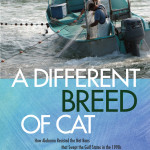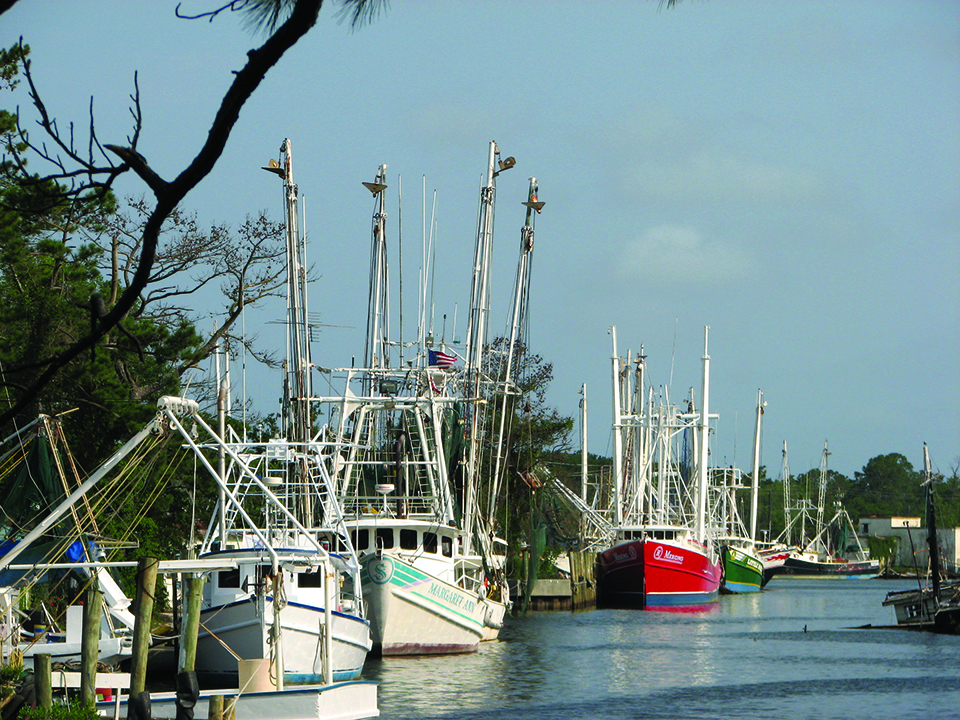After Florida’s voters outlawed most commercial fishing nets in the November 1994 election, sportsmen rose in unison across the Gulf of Mexico. Marshalled by the sport-fishing industry’s Coastal Conservation Association, recreational anglers in Alabama, Mississippi and Louisiana demanded that their own states Ban the Nets!
With a “global fish crisis” media campaign as backdrop, hysteria over a threatened invasion by out-of-work commercial fishermen from the Sunshine State presented sportsmen in the three central-gulf states with a once-in-a-lifetime opportunity, and they knew it.
The battles raged over the spring and summer of 1995. Fishery managers in Louisiana and Mississippi buckled under the sportsmen’s incessant clamoring, and the future looked bleak for Alabama’s family fishermen as well.
Then the cream rose to the top.
Virtually every one of Alabama’s institutions, including its natural resource management agency, media, legislators, even the governor, did their parts to help preserve the public’s sustainable fishery. And in so doing, they made this characteristically hidebound state appear downright progressive.
Veteran fisheries journalist, author and former commercial fisherman Robert Fritchey’s new book, “A Different Breed of Cat,” documents landmark disputes between the recreational and commercial fishing industries with an insider’s perspective and an emphasis on fishery allocation and its relation to our environment, economy and food supply. His other books include “Wetland Riders,” “Missing Redfish,” and “Let the Good Times Roll.”
In “A Different Breed of Cat,” he chronicles the battles over nets from the mid-1990s onward in Alabama, where the state’s resource-management agency brokered a compromise that was hailed as the beginning of a new age in managing the state’s coastal fisheries.

A Different Breed of Cat
Biologists at Alabama’s Division of Marine Fisheries monitored a complex of 13 fish species in 1994 and weren’t hesitant in stating clearly and often that those stocks were healthy. That the fish populations were in good shape — after two centuries of harvest by both sport and commercial fishermen — was testament to the abilities of the state’s fishery managers. It also helped that Alabama’s coastal fisheries were confined to the waters within Mobile Bay and along the state’s limited coastline. But if their compactness made them easier to monitor, it also made them more vulnerable.
When managers attested to the vigor of the fisheries, they made it clear that their data applied only “under current effort.”
If too many of Florida’s displaced net fishermen crossed the border to set up shop, Alabama’s fisheries could be stretched to their limits. The question was, how best to address that problem?
Proposed solutions initially ranged from, “Let our Brothers come,” by the more devout of the net men, to the recreational anglers’ somewhat less gracious, “Ban the nets here, too!”
Ultimately, the task of resolving the issue fell to the Alabama Department of Conservation and Natural Resources’ Advisory Board, which in the past had exhibited a strong propensity to base its decisions more on scientific facts than on emotion and political whim.
Charlie Grimsley, former commissioner of the Department of Conservation and Natural Resources, is a case in point: In a late-November 1994 interview with the Mobile Press-Register, he stated that he had no intention of putting the state’s family fishermen out of business, in spite of “the pressure we’ve had to go ahead and ban the nets, even before the Florida vote. From then, it’s been a crescendo of pressure to ban nets.
“The position I’ve had since I’ve been here is to try to do what’s best for the resource and try to stay out of the emotion,” said Grimsley. “I think there’s a tendency, as the saying goes, to throw the baby out with the bath water: ‘Since Florida shut it down, let’s shut it down.’ People get caught up in ban mania, and we don’t think that’s the way to do it.”
Grimsley allowed that if the Legislature were in session, a total ban would likely be passed, but that would be “a mistake,” he said. “I think a middle ground can be found where commercial and recreational fishermen can share the resource.
“I think the resources were put there for the benefit of man,” added Grimsley, who, before “sustainable use” was cool, articulated its tenets: “I believe in allowing the benefit of the resources as long as it does not impair our ability to pass on the resources to our children and grandchildren.”
The commissioner went so far as to predict that the net ban in Florida could produce an upside for Alabama: “Another factor I don’t think people have considered is we’re probably going to see an increase in the fishery because of the pressure being taken off the fishery in Florida.”
To preserve the industry so that it could benefit from that increase, Grimsley wanted to thwart the possible influx of Florida fishermen by suspending the sale of licenses to non-residents, as Mississippi was doing, “but we feel we can’t discriminate against non-residents because it’s against the Constitution,” said the commissioner, who suggested a safer but more painful alternative: a limited entry system that restricted license sales to any and all netters who could demonstrate a meaningful history in the state’s fishery.
Something had to be done, he emphasized, because a net ban was still a very real possibility, despite what many commercial fishermen believed: “They talk about it as an inalienable right to follow their birthright because their fathers and grandfathers netted. But it’s a privilege in this state. And the people that grant it can take it away.”
With the state agency as referee, sport and commercial interests crafted a bill that legislators rubberstamped and sent to the governor.
In one of the book’s three oral histories, netter Paul de la Maire said, “Governor Fob James, as far as I understood, didn’t side with the sports, like Foster did over in Lou’siana.
“Fob James, he was a Republican, and that had me worried at first. You know, after those Republicans in Texas told their fishermen, ‘You’re outta here!’ But Fob turned out to be a good man.
“His whole thing, he loved mullet and grits on Wednesday. I’d just read that in the paper about him, and when we was fightin’ the net ban, we had gone up to Montgomery for the first hearing. We was all standin’ by the elevator up in the Capitol, Pete Barber and all of us, and the door opened up and who walked out but Fob James.
“And he goes, ‘What are y’all fellas doin’ up here?’ And I said, ‘We’re here to make sure you have plenty of mullet and grits on Wednesdays.’
“’That’s great! Good luck, boys!’ he told us. ‘You get that bill up there and I’ll sign it!’ And we got it up there.”
In the decade after the mid-1990s compromise, sport and commercial landings generally increased. Commercial fishermen landed about 117,000 pounds of the migratory Spanish mackerel in 1993, before the reform. Afterward, their landings topped 900,000 pounds for the first time in 2004, then peaked at nearly 919,000 pounds in 2006.
The increase drove the CCA’s leaders wild. Compounding their misery was the fact that the bullish landings were distributed among fewer and fewer netters.
The 1995 rationalization had immediately reduced the number of resident and non-resident commercial net licenses by two-thirds, from 566 to 188. Since then, the number of active licenses continued to decline, to 127 in 2004, and 108 in 2006.
Netters specifically targeting mullet and mackerel were even fewer; they were required to obtain additional endorsements which, in 2004, numbered 92, and in 2006, just 79.
Yet those reductions in licenses had done nothing to limit the number of fish caught by gillnets in the state, complained CCA Executive Director Ed Williamson in a newspaper article. Instead it allowed “fewer netters to catch even greater numbers of fish than they did before the compromise.”
“Yeah, we caught a lot o’ mackerel,” countered Mobile seafood dealer Ralph Atkins, “because there’s a lot o’ mackerel. It’s real easy.”
In 2007, the Coastal Conservation Association made another run for the nets. This time, the Texas-based group’s leaders adopted the same playbook that had worked so well in other states: They smeared the net fishermen in a defamatory media campaign; paid fishery biologists to justify their actions; imported an official from Texas to paint a happily-ever-after picture of net-free waters; and circumvented the state’s scientifically based fishery management body by turning a pack of high-priced lobbyists loose in the Statehouse.
At the outset of their campaign, CCA spokesmen confidently predicted a “slam dunk,” and the histories of heavyweight states like Texas and Louisiana certainly indicated that politicians favored moneyed anglers over working fishermen. Yet, by the time this dogfight was over, one seriously had to consider the possibility that there really was something in Alabama’s drinking water because even the state’s legislators told the entitled anglers to hit the road, and don’t let the screen door hit your butts on the way out!
Had the anglers taken the nets in 1995, commercial landings would likely have plummeted the following year. Instead, in the 12 years from 1996 through 2007, Alabama’s coastal netters landed over 61 million pounds of fish worth nearly $30 million at the dock.
Still, in 2008, with millionaire sportsman Manning McPhillips at the helm of CCA’s “government relations” committee — and a fleet of lobbyists — the anglers came back harder.
Read more in Robert Fritchey’s latest book, “A Different Breed of Cat.”







